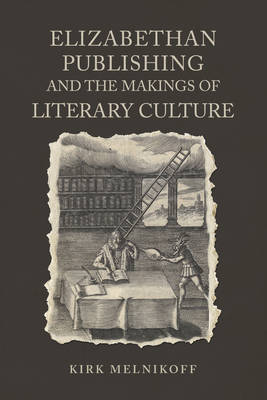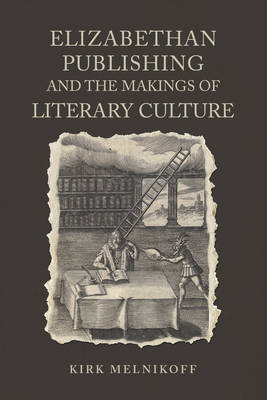
- Retrait gratuit dans votre magasin Club
- 7.000.000 titres dans notre catalogue
- Payer en toute sécurité
- Toujours un magasin près de chez vous
- Retrait gratuit dans votre magasin Club
- 7.000.0000 titres dans notre catalogue
- Payer en toute sécurité
- Toujours un magasin près de chez vous
Description
Elizabethan Publishing and the Makings of Literary Culture explores the influence of the book trade over English literary culture in the decades following incorporation of the Stationers' Company in 1557. Through an analysis of the often overlooked contributions of bookmen like Thomas Hacket, Richard Smith, and Paul Linley, Kirk Melnikoff tracks the crucial role that bookselling publishers played in transmitting literary texts into print as well as energizing and shaping a new sphere of vernacular literary activity.
The volume provides an overview of the full range of practises that publishers performed, including the acquisition of copy and titles, compiling, alteration to texts, reissuing, and specialization. Four case studies together consider links between translation and the travel narrative; bookselling and authorship; re-issuing and the Ovidian narrative poem; and specialization and professional drama. Works considered include Shakespeare's Hamlet, Thévet's The New Found World, Constable's Diana, and Marlowe's Dido, Queen of Carthage. This exciting new book provides both a complement and a counter to recent studies that have turned back to authors and out to buyers and printing houses as makers of vernacular literary culture in the second half of the sixteenth century.
Spécifications
Parties prenantes
- Auteur(s) :
- Editeur:
Contenu
- Nombre de pages :
- 312
- Langue:
- Anglais
- Collection :
Caractéristiques
- EAN:
- 9781487502232
- Date de parution :
- 29-03-18
- Format:
- Livre relié
- Format numérique:
- Genaaid
- Dimensions :
- 155 mm x 231 mm
- Poids :
- 612 g

Les avis
Nous publions uniquement les avis qui respectent les conditions requises. Consultez nos conditions pour les avis.






